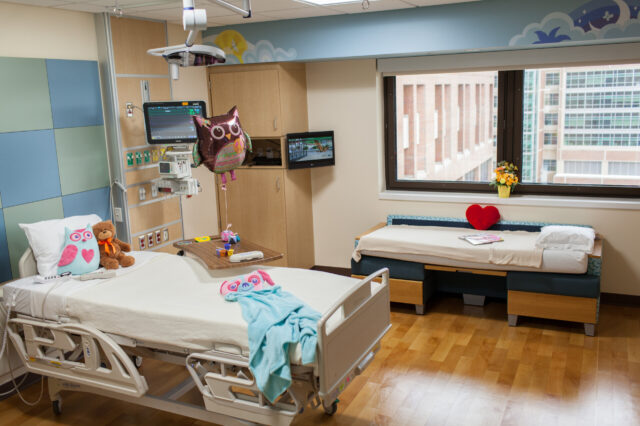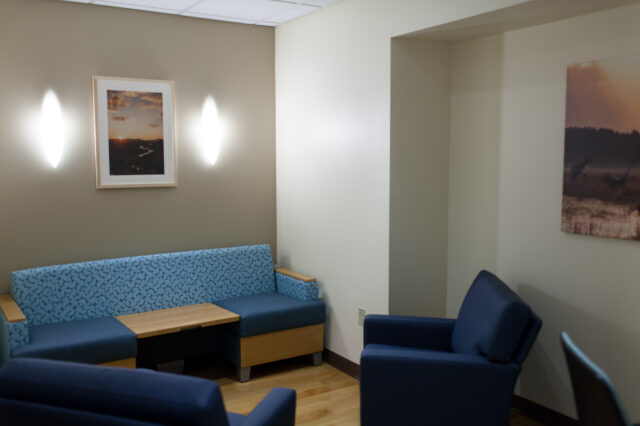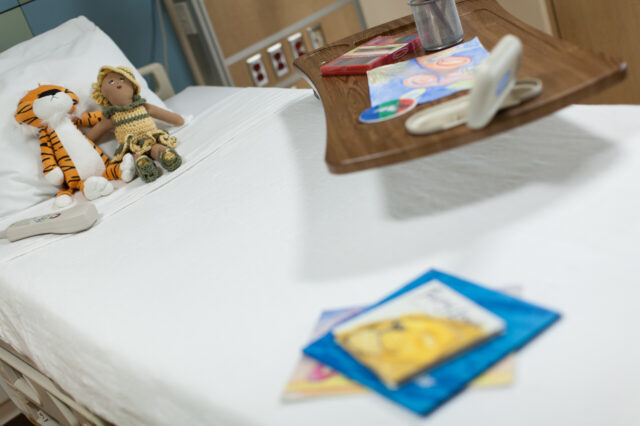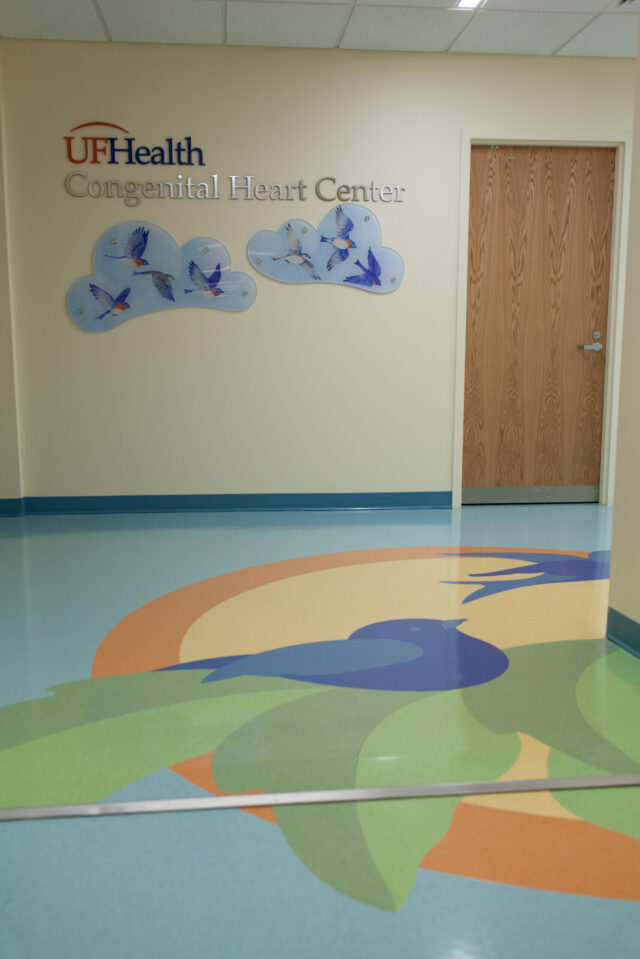Electrophysiology Program and Arrhythmia Care
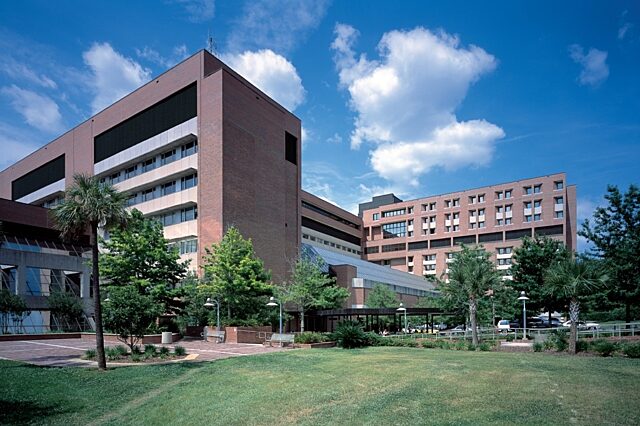
If you or your child is experiencing a heart rhythm abnormality, put your trust in an institution recognized among the very best in the country at solving the problem.
The UF Health Congenital Heart Center is home to the Electrophysiology (EP) Program, which is devoted to caring for children with any heart rhythm-related issue, as well as children and adults with congenital heart disease and heart rhythm disorders.
Dedicating their attention to you is a welcoming EP staff that is not only expertly trained but also full-time, a unique service in northern Florida. That’s just one of many reasons why UF Health stands among the nation’s highest-performing hospitals for cardiology and heart surgery, as rated by U.S. News & World Report.
Mohammad Al-Mousily, MD, oversees the EP program and has extensive experience in all aspects of clinical and invasive electrophysiology.
"Here at the UF Health Congenital Heart Center, we are committed to providing the highest-quality, leading-edge care for the management of children and patients of all ages with congenital heart disease who experience heart rhythm disorders,” said Dr. Chang, who is endorsed by the Heart Rhythm Society. “Whether it’s fluoroscopy- and radiation-free procedures or the latest in implantable pacemaker and defibrillator devices, our comprehensive electrophysiology program is here to serve you," Dr. Chang said.
The electrophysiology, or EP, program offers the complete scope of diagnostic and treatment services to treat children and adults with arrhythmias, such as sinus node dysfunction (“sick sinus syndrome”), heart block, supraventricular tachycardia (SVT), atrial fibrillation/flutter and ventricular arrhythmias (premature ventricular contractions, ventricular tachycardia/fibrillation). In some cases, arrhythmia conditions are congenital (present prior to and at birth). In addition, arrhythmias can frequently develop in the setting of unrepaired or repaired congenital heart defects, which are the most common type of birth defect.
Key benefits and services include
Outpatient and inpatient consultative services
- Timely scheduling of clinic appointments
Electrocardiogram (ECG) recording and rhythm monitoring
- Outpatient and inpatient ECG interpretation
- 24-Holter, 30-day event recorder wearable devices
Exercise stress testing
- Standard treadmill or bicycle testing and cardiopulmonary exercise testing
Implantation and monitoring of cardiac electronic devices
- Pacemakers, ICDs, resynchronization devices and loop recorders
- Transvenous device implantation and generator replacement
- Subcutaneous ICD implantation
- Leadless pacemaker implantation
- Comprehensive transvenous lead extraction program, including complex extraction procedures (mechanical sheath assisted, superior and inferior extraction approaches)
Screening, genetic testing and management
- Consultation and screening for individual or family history of cardiac arrest or sudden cardiac death
- Genetic testing for inheritable arrhythmia and cardiomyopathy conditions
- Medical and implantable device therapies
Electrophysiology testing and catheter ablation
- Invasive and noninvasive diagnostic electrophysiology testing and drug provocation studies
- Reduced fluoroscopy and/or fluoroscopy-free (“fluoroless”) studies and ablation procedures
- Radiofrequency ablation (RF heating) and cryoablation (freezing) options for arrhythmia treatment
Education and research
- Close collaboration with adult EP service
- Pediatric cardiology and adult cardiac EP fellowship teaching and training
- Participation in original and multicenter research studies
Other services
- Diagnostic electrophysiology testing
- Catheter ablation of arrhythmias
- Lead extraction
- Hybrid arrhythmia treatment
Related Health Topics
- Arrhythmias
- Atrial fibrillation or flutter
- Cardiac ablation procedures
- Cardiac arrest
- Cardiac catheterization
- Cardiomyopathy
- Congenital heart defect
- Electrocardiogram
- Exercise stress test
- Heart pacemaker
- Heart palpitations
- Holter monitor (24h)
- Implantable cardioverter-defibrillator
- Intracardiac electrophysiology study (EPS)
- Multifocal atrial tachycardia
- Paroxysmal supraventricular tachycardia (PSVT)
- Pulse
- Pulse – bounding
- Sick sinus syndrome
- Ventricular fibrillation
- Ventricular tachycardia
- Wolff-Parkinson-White syndrome (WPW)
